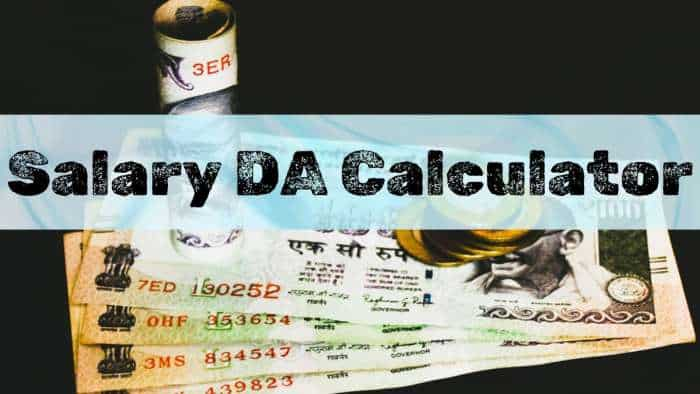This is how India can prevent recurrence of NPA crisis in future; Raghuram Rajan gives key pointers
Raghuram Rajan said, “We need concentrated attention by a high level empowered and responsible group set up by government on cleaning up the banks.”

The former RBI governor Raghuram Rajan recently presented his report on rising NPA situation in the banks in front of a committee which was headed by Murli Manohar Joshi. While explaining the cause of NPA rise in the banking system, Rajan also laid out key pointers which can be used in the country to prevent the recurrence of this issue ahead.
Rajan said, “We need concentrated attention by a high level empowered and responsible group set up by government on cleaning up the banks.”
Here’s how India to avoid the same NPA crises in future, as per Rajan.
Improve governance of public sector banks and distance them from the government
- Public sector bank boards are still not adequately professionalized, and the government rather than a more independent body still decides board appointments, with the inevitable politicization. Eventually strong boards should be entrusted with all decisions but held responsible for them.
- Compensation structures in PSBs also need rethinking, especially for high level outside hires. Internal parity will need to be maintained. There will be internal resistance, but lakhs of crores of national assets cannot be held hostage to the career concerns of a few.
- Risk management processes still need substantial improvement in PSBs. Compliance is still not adequate, and cyber risk needs greater attention.
Improve the process of project evaluation and monitoring to lower the risk of project NPAs
- Significantly more in-house expertise can be brought to project evaluation, including understanding demand projections for the project’s output, likely competition, and the expertise and reliability of the promoter.
- Real risks have to be mitigated where possible, and shared where not. Real risk mitigation requires ensuring that key permissions for land acquisition and construction are in place up front, while key inputs and customers are tied up through purchase agreements.
- Promoters should be incentivized to deliver, with significant rewards for on-time execution and debt repayment. Where possible, corporate debt markets, either through direct issues or securitized project loan portfolios, should be used to absorb some of the initial project risk.
- Financiers should put in a robust system of project monitoring and appraisal, including where possible, careful real-time monitoring of costs. Projects that are going off track should be restructured quickly, before they become unviable.
- IT systems within banks should be able to pull up overall performance records of loans recommended by individual bankers easily, and this should be an input into their promotion and pay.
Strengthen the recovery process further
- Both the out of court restructuring process and the bankruptcy process need to be strengthened and made speedy. The former requires protecting the ability of bankers to make commercial decisions without subjecting them to inquiry.
- The latter requires steady modifications where necessary to the bankruptcy code so that it is effective, transparent, and not gamed by unscrupulous promoters.
Government should focus on sources of the next crisis, not just the last one. In particular, government should refrain from setting ambitious credit targets or waiving loans
- Both MUDRA loans as well as the Kisan Credit Card, while popular, have to be examined more closely for potential credit risk. The Credit Guarantee Scheme for MSME (CGTMSE) run by SIDBI is a growing contingent liability and needs to be examined with urgency.
- Loan waivers, as RBI has repeatedly argued, vitiate the credit culture, and stressthe budgets of the waiving state or central government. They are poorly targeted,and eventually reduce the flow of credit. Agriculture needs serious attention, but not through loan waivers.
- An all-party agreement to this effect would be in the nation’s interest, especially given the impending elections.
Get Latest Business News, Stock Market Updates and Videos; Check your tax outgo through Income Tax Calculator and save money through our Personal Finance coverage. Check Business Breaking News Live on Zee Business Twitter and Facebook. Subscribe on YouTube.
RECOMMENDED STORIES

Dearness Allowance (DA) Calculations: Is your basic monthly salary Rs 25,500, Rs 35,400, or Rs 53,100? Know how much DA will you get at different rates

Power of Compounding: How long it will take to build Rs 8 crore corpus with Rs 7,000, Rs 11,000 and Rs 16,000 monthly investments

Income Tax Calculations: What will be your tax liability if your salary is Rs 8 lakh, Rs 14 lakh, Rs 20 lakh, and Rs 26 lakh?

Monthly Pension Calculations: Is your basic pension Rs 25,000, Rs 35,000, or Rs 50,000? Know what can be your total pension as per latest DR rates

Fixed Deposit Rates for 1 Lakh Investment: Compare SBI, PNB, HDFC, ICICI, and Post Office 3-year FD returns
07:25 PM IST










 SBI report calls Raghuram Rajan's remarks on Hindu rate of growth 'Ill-conceived, biased'
SBI report calls Raghuram Rajan's remarks on Hindu rate of growth 'Ill-conceived, biased' Why has SEBI not yet got to bottom of Mauritius funds holding and trading Adani stocks: Raghuram Rajan
Why has SEBI not yet got to bottom of Mauritius funds holding and trading Adani stocks: Raghuram Rajan Former RBI Governor Raghuram Rajan joins Congress-led Bharat Jodo Yatra in Rajasthan
Former RBI Governor Raghuram Rajan joins Congress-led Bharat Jodo Yatra in Rajasthan Farm loan waivers kill credit culture, says former RBI Governor Raghuram Rajan
Farm loan waivers kill credit culture, says former RBI Governor Raghuram Rajan Raghuram Rajan says capitalism is 'under serious threat' after 2008 global financial meltdown
Raghuram Rajan says capitalism is 'under serious threat' after 2008 global financial meltdown